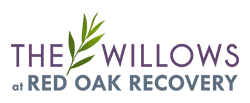At mental health and addiction treatment centers, cognitive behavioral therapy (CBT) and dialectical behavior therapy (DBT) are both popular treatment options. Many people wonder what the main differences between DBT vs. CBT are. These talk therapies can treat a wide range of mental disorders, so the right choice depends on the client’s unique needs.
To learn more about The Willows at Red Oak Recovery®’s CBT and DBT, and our other treatment options, call 828.518.6941 today. We are always happy to discuss the differences between CBT and DBT for addiction. At The Willows, we help women heal so they can thrive. Everyone deserves the best chance at a happy, healthy life.
A History of DBT and CBT in Women’s Recovery
CBT was invented by therapist Dr. Aaron Beck in the 1960s, and DBT was created by Dr. Marsha Linehan in the late 1980s. These therapies were originally developed to treat a range of mental health conditions but have since been adapted for use in addiction treatment. CBT was created with the theory that our thoughts, feelings, and behaviors are all interconnected, and changing our thought patterns can lead to changes in behavior. DBT focuses on managing difficult emotions and developing coping skills.
At The Willows at Red Oak Recovery®, we incorporate both CBT and DBT techniques into our evidence-based treatment programs for women.
Learning More About DBT vs. CBT
CBT is a kind of therapy that works to change how someone thinks or acts. How successful therapy is will depend on the relationship between the therapist and client as well as the client’s desire to actually change. In therapy, the client may work on ways to:
- Limit self-defeating behaviors
- Modify negative reactive thoughts
- Learn healthier ways to respond to problems
Meanwhile, DBT is actually a type of CBT. Clinicians originally designed the dialectical behavior therapy program for treating borderline personality disorder. Over the years, counselors have discovered that DBT works for more types of mental illnesses as well.
DBT primarily focuses on the following:
- Managing relationships with other people
- Regulating emotions
- Teaching skills like living in the present through mindfulness practices
- Withstanding stress
Normally, DBT sessions take place over the course of a year or longer. The goal is to teach clients how to cope with difficult situations in a healthier way. When deciding between CBT vs. DBT, it’s important to take into account the severity of symptoms and how much time a client is willing to commit to treatment.
What Are the Differences Between DBT vs. CBT?
What are the differences between CBT vs. DBT therapy? Many addiction treatment services focus on therapies like DBT and CBT. Normally, clients will choose between DBT vs. CBT with the help of their therapist or counselor. CBT is often the first line of response for depression because it is so effective. Meanwhile, DBT is generally the top choice for borderline personality disorder.
CBT is also a top therapy for treating panic disorder, phobias, sleep problems, obsessive-compulsive disorder, and post-traumatic stress disorder. Doctors use DBT for sexual trauma, suicidal ideation, and self-harm behaviors. While DBT focuses on mindfulness and emotional regulation, CBT centers around how feelings, thoughts, and behaviors impact each other. Both techniques are useful in treating mental disorders, so the right choice depends entirely on the individual’s unique situation and needs.
Selecting the Best Therapy Program
Ultimately, DBT and CBT are both effective ways to treat addiction and mental illnesses. Choosing between DBT and CBT depends entirely on your personal needs. When you enter a treatment program, an intake specialist will perform an initial assessment to figure out the kinds of addiction therapy services you need. Then, you can begin your personalized treatment process.
At an addiction and mental health treatment center, you can discover programs such as:
- Dual diagnosis care
- Relationship building
- Service work
- Trauma therapy
- Aftercare programs
- Experiential therapy like horseback riding, hiking, and ropes courses
These programs can work together with CBT and DBT to create a comprehensive treatment plan.
Start DBT or CBT at The Willows at Red Oak Recovery®
No one has to confront the challenge of addiction alone. Through the compassionate team at The Willows at Red Oak Recovery®, you can begin your personal journey toward a healthier lifestyle. From addiction treatment to therapy for co-occurring disorders, we can help you get the right treatment options for your unique needs. To learn more about how we can help with your recovery, contact us today by calling us at 828.518.6941 or by filling out our online form. We can help you achieve the life you deserve.


